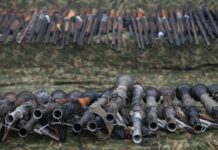My wife and I have been considering buying a property on the Hawaiian island of Kauai to escape the chill, rainy Vancouver winters. One can imagine our distress when we learned that someone I regard as among the most contemptible people on the planet, Mark Zuckerberg, is building a 1,500-acre compound on this most beautiful island in the Hawaiian archipelago.
Citing various sources, Stephen Green at PJ Media reports that “a 5,000-square-foot underground lair featuring its own energy and food supplies is under construction.” According to Housing.com, also cited by Green, Zuckerberg’s $270 million Koolau Ranch project “is designed to function as a self-sufficient space, ready to withstand global catastrophes…It is packed with security measures, encompassing keypad locks, soundproofing and concealed doors, while an extensive camera network ensures surveillance.”
The Guardian informs us that Zuckerberg’s lawyers “filed suit against hundreds of local Hawaiians who may own an interest in small pockets within his estates boundaries… [which is] surrounded by a 6ft stone wall blocking easy access to Pila’a Beach.” A local resident described this legal action as “the face of neocolonialism.” Zuckerberg eventually backed down, and the disputed parcels of land were sold at auction. How that changed anything is beyond me.
Apparently, “a smaller-scale ‘bunker’ is being built on nearby Maui by none other than Oprah Winfrey.” Mr. Portfolio himself, Bill Gates, who owns at least seven multi-million dollar homes, extensive farmland, hotel chains, and a private island in Belize, is rumored to have bunkers at all his properties.
Billionaire bunkers are in, it seems, to protect the world’s oligarchs from an impending apocalypse that they have conspired to bring about. “A number of companies around the world are meeting a growing demand for structures that protect from any risk, whether it’s a global pandemic, an asteroid, or World War III – while also delivering luxurious amenities,” says CEO Robert Vicino of Vivos, an underground shelter company.
The Vivos account continues: “Most include food supplies for a year or more, and many have hydroponic gardens to supplement the rations. The developers also work to create well-rounded communities with a range of skills necessary for long-term survival, from doctors to teachers. The company also offers Vivos Europa One, billed as a ‘modern day Noah’s Ark.’” Or “if you prefer to spend the end of days solo, or at least with hand-selected family and friends, you may prefer to consider The Oppidum in the Czech Republic, which is being billed as the largest billionaire bunker in the world.”
These underground people, whose vaunted charity is a lie, whose work on the surface of the earth is a snare and a delusion, remind me of H.G. Wells’ Morlocks in his timeless “The Time Machine” — with evident adjustments, of course. One recalls the story. Over the millennia, the human race had split into two thinly related species, the feeble and effeminate surface-dwelling Eloi and the semi-human, cannibalistic, subterranean Morlocks who prey on their helpless siblings. The Morlocks are clearly on their way to establishing their rule on the earth.
As the narrator says, “But gradually the truth dawned on me: that Man had not remained one species, but had differentiated into two distinct animals: that my graceful children of the Upper-world were not the sole descendants of our generation, but that this bleached, obscene, nocturnal Thing, which had flashed before me, was also heir to all the ages.” The creatures of the underground are on the ascent and will inherit the earth before they descend anew to bask in their fortified and palatial redoubts.
One thinks in this connection of the important work of Ellen Schreckter, a conservative professor of American history, on the political turmoil of the McCarthy era. In “The Age of McCarthyism: A Brief History with Documents,” she analyzes the communist peril of the time and the misunderstood courage of Sen. Joe McCarthy in combatting the threat. It was a losing battle. With the ideology of the Left metastasizing in the media, the corridors of power, and the universities, infiltrating every major institution in the country, the new enemy eventually rose to prominence, as she writes, like “the Morlocks [rising] from passive predator into cunning manipulator preying on a weak population.”
The “new enemy” we confront today is a composite phenomenon. It reeks of communism, fascism, and “stakeholder capitalism” — in other words, it has morphed into what we might call a “Party-colored” totalitarian movement fueled by the denizens of a down-gradient moral ecosystem.
Argentine president Javier Milei uses cloacal imagery in his denunciation of such people. Roger Simon calls them “the self-anointed elites of no discernible distinction whatsoever”—the Gateses, the Schwabs, the Soroses, the Bezoses, the Finks, and, of course, the Zuckerbergs — living in the lap of plutocratic luxury and controlling the levers of social, political and economic power. Not all have commissioned underground presidios, but they are all part of the underground, a community of upscale Morlocks.
As noted, one of these mandarins now commands a significant stretch of Kauai’s northern coastline around Pila’a Beach. Fortunately, Janice and I are concentrating on the southern part of the island around Poipu Beach, banking on the intervening distance to dilute the contagion. We are not interested in Oppidums, which is where the moral riffraff hangs out. We are not interested in the proximity of superficially clever people with uneventful minds, omnivorous appetites, and manorial compulsions.
The island is a haven for movie companies and boasts a growing tourist industry, developments which are understandable considering what Kauai has to offer. This does not affect us. We are private but not isolate. We enjoy our own company and take a genuine interest in local customs and learning the language of those we live among. But the underground people are the bane of our existence.




